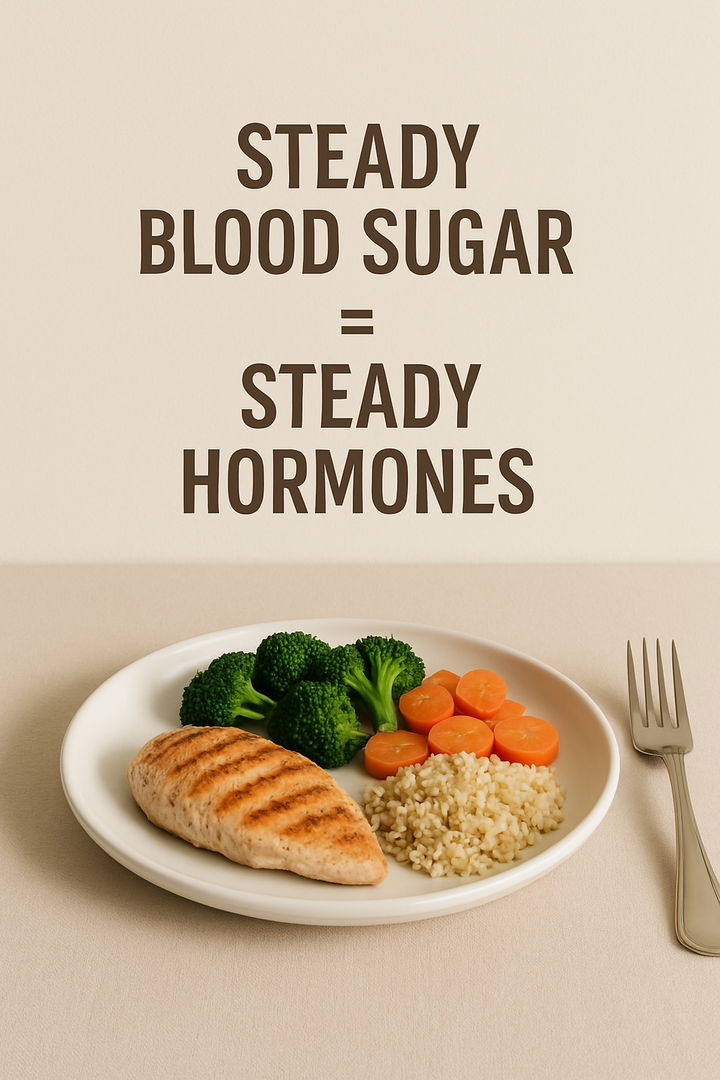Balancing your hormones naturally is all about supporting your body with consistent, intentional daily habits. Hormones regulate everything from mood and metabolism to energy levels and reproductive health, so keeping them in harmony can help you feel more vibrant, stable, and focused. One of the most effective ways to support hormonal balance is through nutrition. Focus on whole foods rich in healthy fats (like avocados, nuts, and olive oil), fiber (found in leafy greens and whole grains), and high-quality protein. These nutrients provide the building blocks your body needs to create and regulate hormones.
Blood sugar stability is also essential. Eating balanced meals throughout the day—each with protein, fiber, and fat—can prevent insulin spikes that throw hormones out of sync. Reducing processed foods and refined sugars can make a big difference. Equally important is stress management. Chronic stress leads to elevated cortisol, which can disrupt estrogen, progesterone, and even thyroid function. Prioritize rest, mindfulness, deep breathing, and activities that bring joy and calm.
Movement plays a major role as well. Gentle, consistent exercise like walking, yoga, or strength training helps regulate hormones such as insulin and cortisol. Over-exercising, however, can have the opposite effect, especially in women. Sleep is another critical factor; aim for 7–9 hours per night. During sleep, your body repairs and regulates its hormonal systems.
Staying hydrated, avoiding endocrine-disrupting chemicals (like BPA or synthetic fragrances), and syncing with natural rhythms like sunlight in the morning can further enhance balance. Finally, consider tracking your cycle (if applicable) to understand your body’s patterns better. With these daily practices, you can create a lifestyle that naturally supports hormonal health—without extreme diets or quick fixes. Consistency is key, and small changes can lead to powerful, lasting results.
1. Eat Balanced, Whole Foods
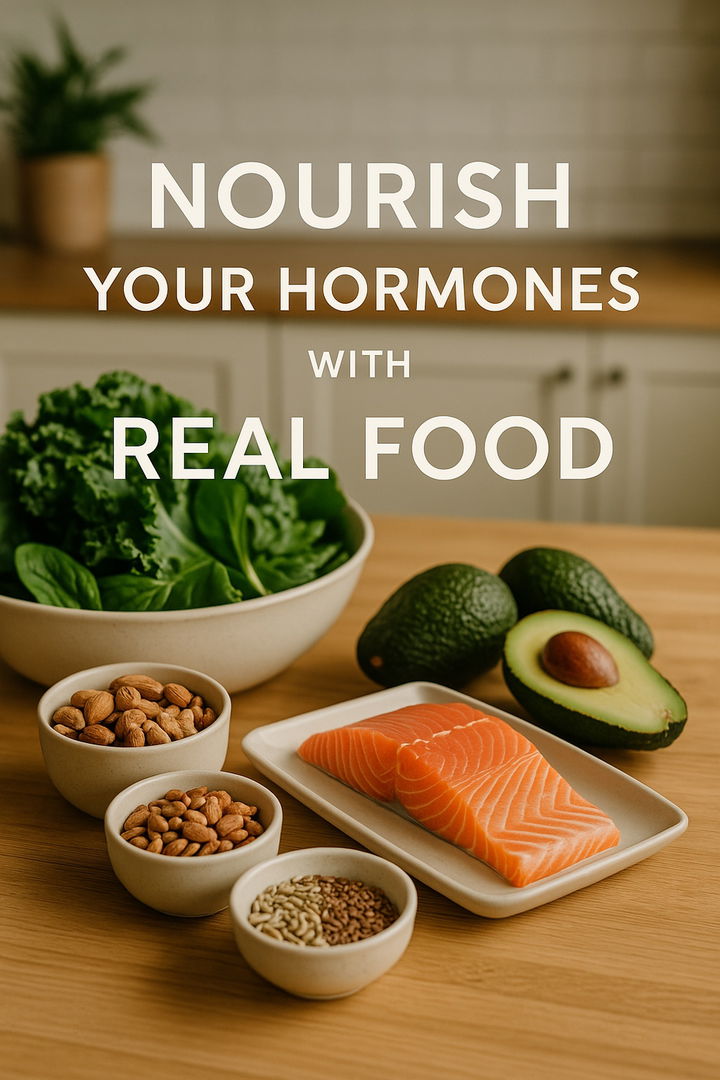
Fuel your hormones with real, whole foods that nourish your body from the inside out. Leafy greens, healthy fats, quality protein, and fiber-rich nuts and seeds all work together to keep your hormone levels steady and your energy strong. What you eat directly impacts your hormonal health—so choose nutrient-dense options that support balance, vitality, and long-term wellness. A colorful, balanced plate is one of the simplest, most powerful ways to care for your hormones.
2. Prioritize Quality Sleep

Getting deep, restful sleep is non-negotiable for healthy hormones. While you sleep, your body repairs, balances cortisol, and regulates important reproductive and metabolic hormones. Poor sleep leads to stress, imbalanced insulin, and mood swings. Creating a consistent sleep routine and keeping your bedroom cool, dark, and peaceful helps set the stage for hormone healing overnight. Sleep isn’t a luxury—it’s your body’s secret weapon for hormonal harmony, emotional resilience, and optimal health. Prioritize rest like it’s medicine
3. Manage Stress Daily

Chronic stress is one of the biggest disruptors of hormone balance. When you’re always on edge, your body produces too much cortisol, which can throw off estrogen, progesterone, and thyroid function. Daily stress management practices—like meditation, deep breathing, journaling, or nature walks—can calm your nervous system and create space for healing. Managing stress is not optional; it’s a daily practice of checking in, slowing down, and honoring your body’s need for peace, rhythm, and emotional support.
4. Move Your Body Wisely
Exercise is essential for hormone balance, but it’s not about pushing harder—it’s about moving smarter. Gentle strength training, walking, and mindful movement like yoga or Pilates support balanced insulin, lower cortisol, and improved metabolism. Over-exercising can backfire, increasing stress and disrupting cycles. The key is consistency, joy, and listening to your body. Choose movement that energizes without depleting, and you’ll find yourself stronger, more balanced, and hormonally happy. Smart movement truly equals happy hormones.
5. Support Liver Detox
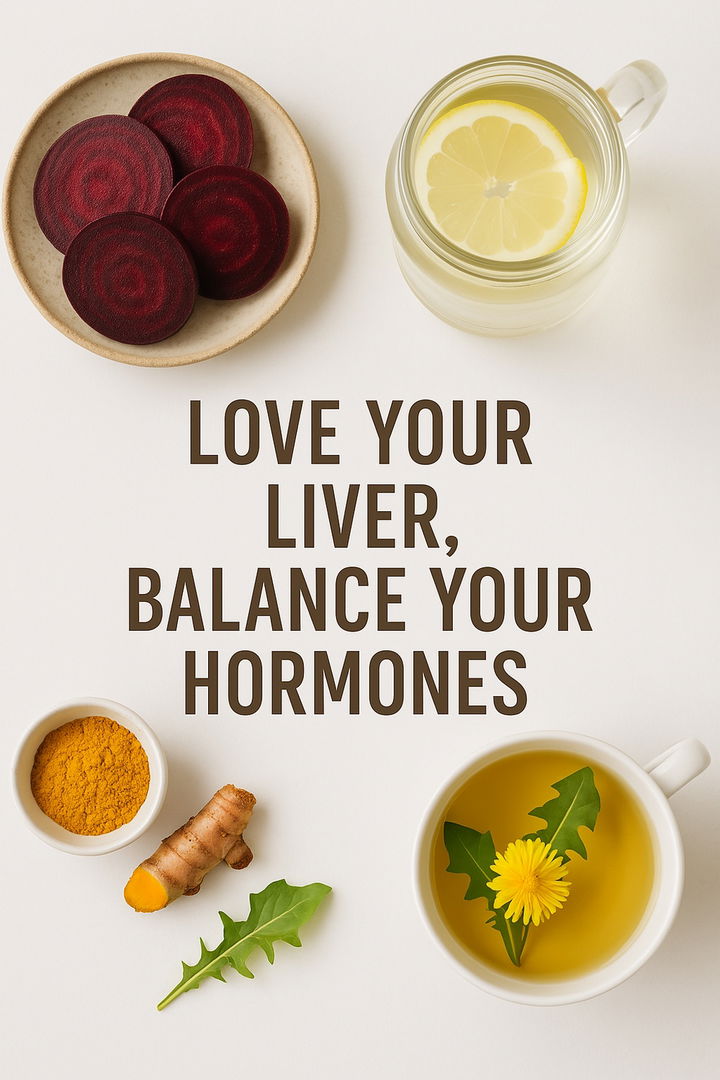
Your liver is a hormone-processing powerhouse. When it’s overwhelmed with toxins, hormone balance suffers. Help your liver thrive with detox-friendly foods like beets, turmeric, lemon water, and dandelion tea. These natural cleansers support your liver’s ability to break down excess hormones and environmental toxins. A happy liver equals clearer skin, balanced moods, and more stable cycles. Make liver-loving foods a regular part of your wellness routine to naturally support hormone health from the inside out.
6. Reduce Toxin Exposure
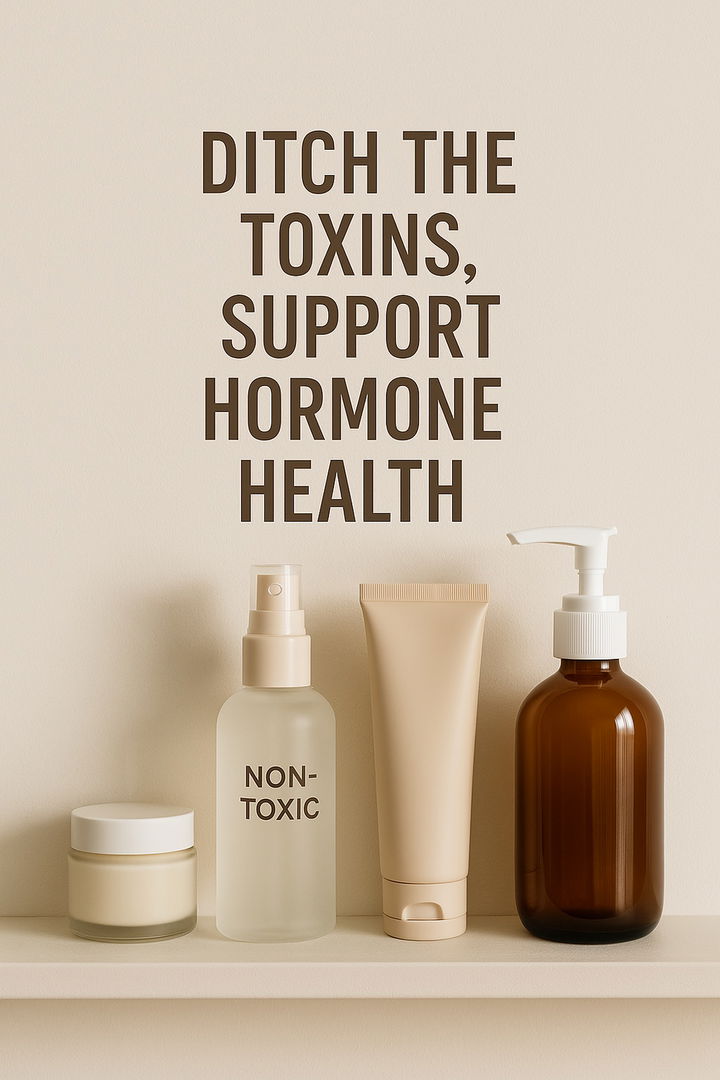
Toxins in everyday beauty and cleaning products can act like hormone disruptors, mimicking estrogen and burdening your detox system. Swap synthetic ingredients for non-toxic, natural alternatives in skincare, makeup, and home essentials. Every small change matters. Choose products in glass or reusable containers, and check for “fragrance-free” or “paraben-free” labels. Living a low-tox lifestyle helps protect your hormones, reduce inflammation, and promote better energy and mood. Less toxic load = more hormonal freedom and clarity.
7. Balance Blood Sugar
Balanced blood sugar is a cornerstone of hormonal health. Every time your blood sugar spikes and crashes, your body releases stress hormones, impacting insulin and sex hormones. Build meals with protein, fiber, healthy fats, and complex carbs to maintain steady energy and mood. Avoid skipping meals and sugary snacks that create hormonal chaos. A stable blood sugar rhythm supports better cycles, improved focus, and fewer cravings. Steady blood sugar truly means steady, stable hormones for life.
8. Track Your Cycle or Hormone Patterns
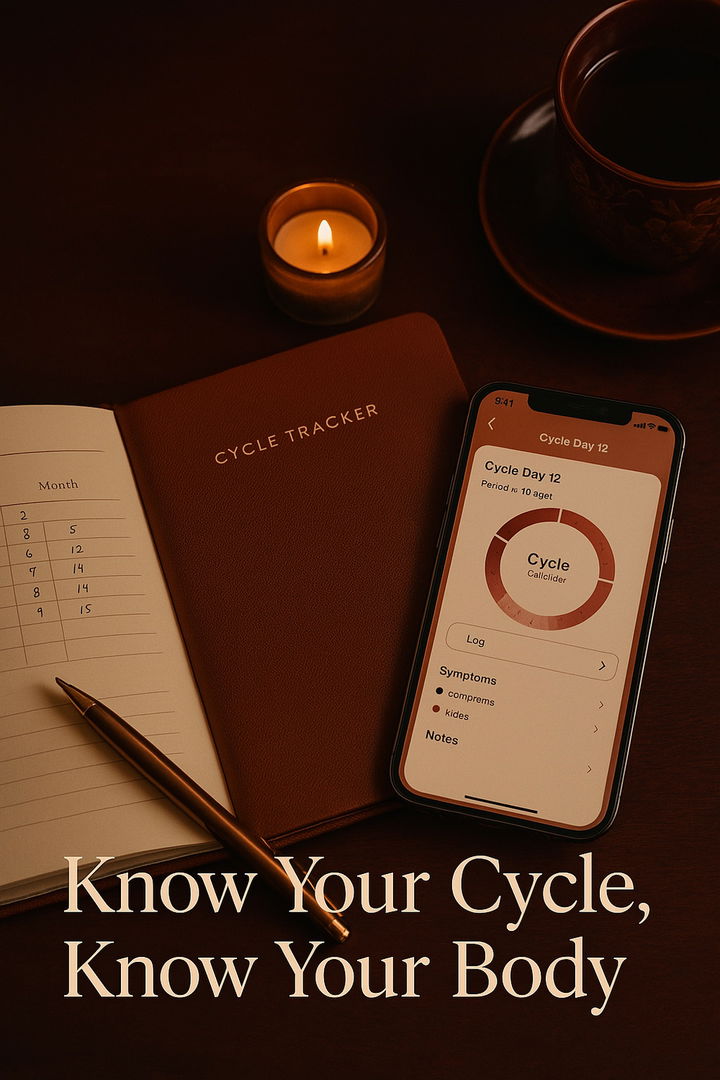
Your menstrual cycle is a powerful health signal. Tracking it helps you understand your body’s rhythm, identify hormonal imbalances, and sync your lifestyle accordingly. Whether it’s through a journal or an app, recording symptoms, moods, and physical signs reveals your unique hormonal blueprint. Knowledge is power—when you know your cycle, you can optimize workouts, nutrition, and self-care. It’s not just about fertility; it’s about connection. Know your cycle, and you’ll know your body on a deeper level.


